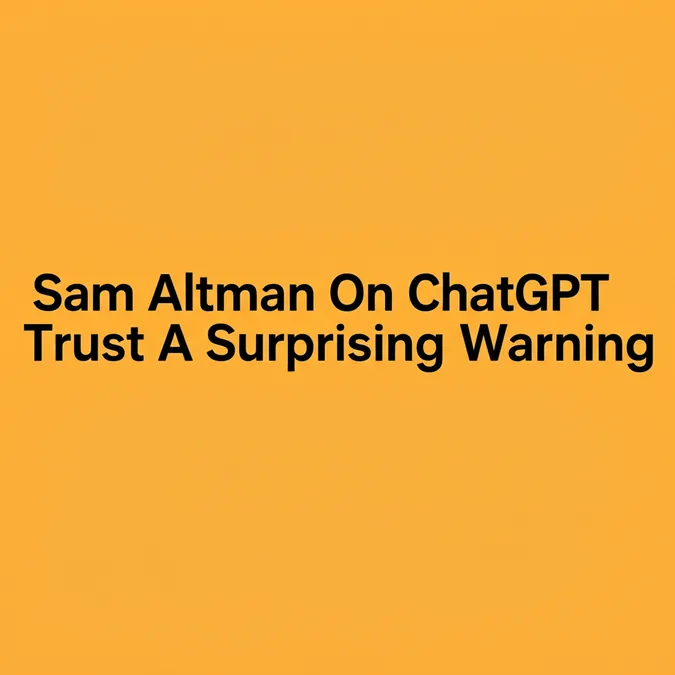Developer Offer
Try ImaginePro API with 50 Free Credits
Build and ship AI-powered visuals with Midjourney, Flux, and more — free credits refresh every month.
ChatGPT Overuse Could Dull Your Brain MIT Study Warns
Beyond the usual concerns about screen time and endless scrolling, a new study from MIT’s Media Lab offers a compelling reason for caution: excessive use of ChatGPT might be dulling your cognitive abilities.
How MIT Studied AI's Effect on the Brain
Researchers conducted an experiment where 54 individuals were tasked with writing SAT-style essays over a period of several months. The participants were divided into three groups: one worked entirely independently, another had access to Google Search, and the third utilized ChatGPT. Throughout the process, scientists used EEGs to monitor brain activity across 32 distinct regions, yielding consistent and somewhat concerning results for proponents of AI.
ChatGPT Users Showed Weaker Brain Activity
The group relying on ChatGPT demonstrated significantly weaker brain connectivity compared to the others. These participants also produced lower-quality essays and had difficulty remembering the content they had generated. Notably, even when later asked to write without AI assistance, their brains appeared to remain disengaged. A researcher involved in the study described this as "cognitive debt," suggesting that the brain essentially reduces its effort when it becomes reliant on AI.
The Power of Writing Unassisted
Conversely, individuals who wrote their essays without any technological aids exhibited the highest levels of brain activity. Their EEG readings revealed strong alpha and theta brain waves, which are associated with deeper cognitive processing, improved memory retention, and enhanced creative thinking. Furthermore, these participants reported a stronger sense of personal ownership and connection to their work.
Google Search A Different Kind of Aid
The participants using Google Search fell into a middle category. Their results suggest that traditional search engines can assist the thinking process without completely taking it over. The study posits that while search can be a tool for learning, ChatGPT's convenience might lead users to become so reliant on it that they bypass the learning process itself.
For a visual summary of the study's findings, you can watch how MIT's research suggests ChatGPT impacts our brains.
AI in Education A Growing Concern
Nataliya Kosmyna, the lead author of the study, highlighted her concerns about introducing AI tools prematurely into educational environments. She explained that the research publication was expedited due to these worries, particularly for younger individuals whose brains are still developing and are considered to be at the "highest risk."
Key Takeaways and A Note of Caution
It's important to note that this study has not yet undergone peer review and involved a relatively small number of participants. However, its central message is quite clear: consistently relying on ChatGPT for tasks like completing school assignments or drafting emails could lead to a gradual disengagement of your brain's cognitive functions. This risk may be particularly pronounced for younger individuals.
The study serves as a reminder of the value of independent thought. Engaging your own cognitive abilities can be a far more rewarding experience!
Compare Plans & Pricing
Find the plan that matches your workload and unlock full access to ImaginePro.
| Plan | Price | Highlights |
|---|---|---|
| Standard | $8 / month |
|
| Premium | $20 / month |
|
Need custom terms? Talk to us to tailor credits, rate limits, or deployment options.
View All Pricing Details

